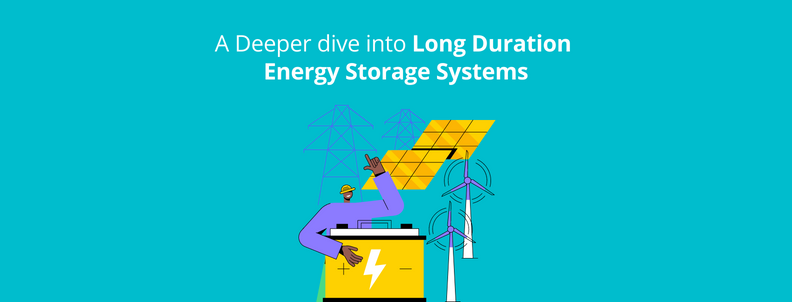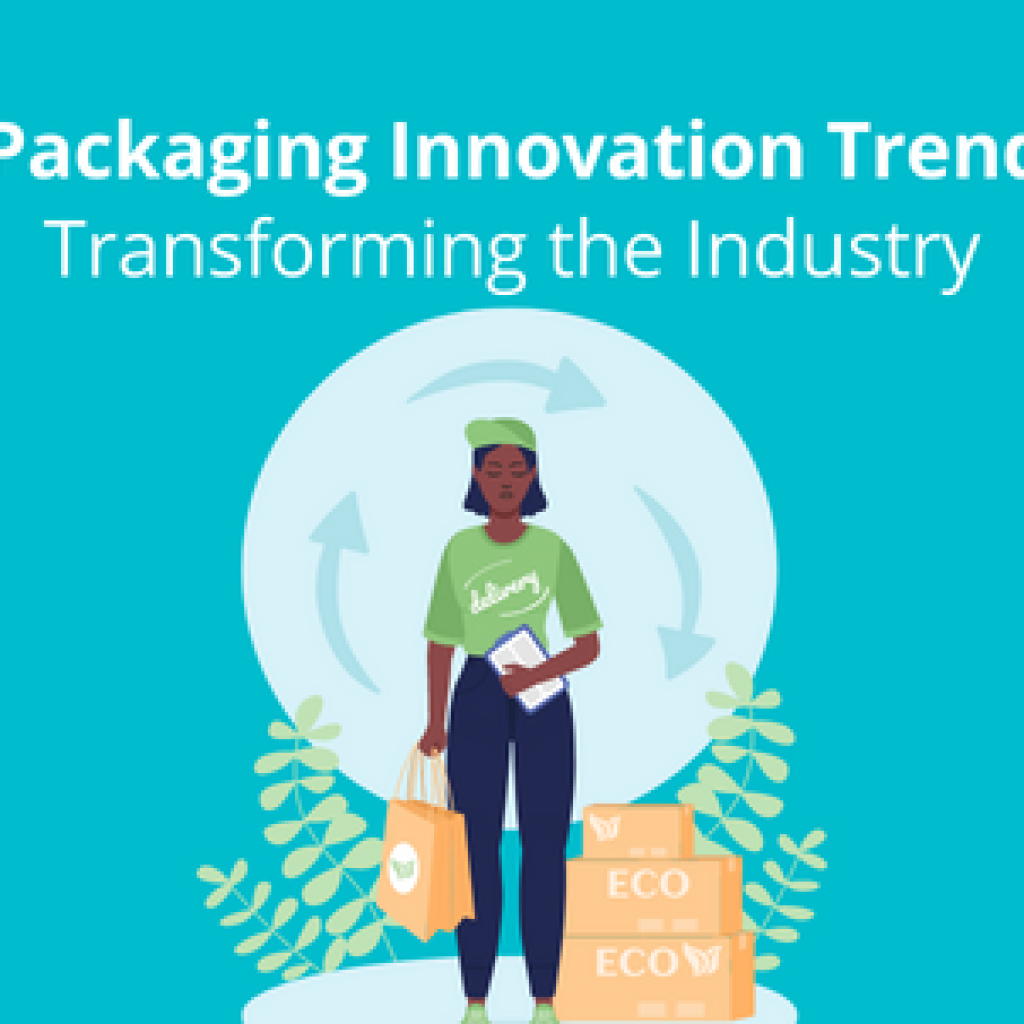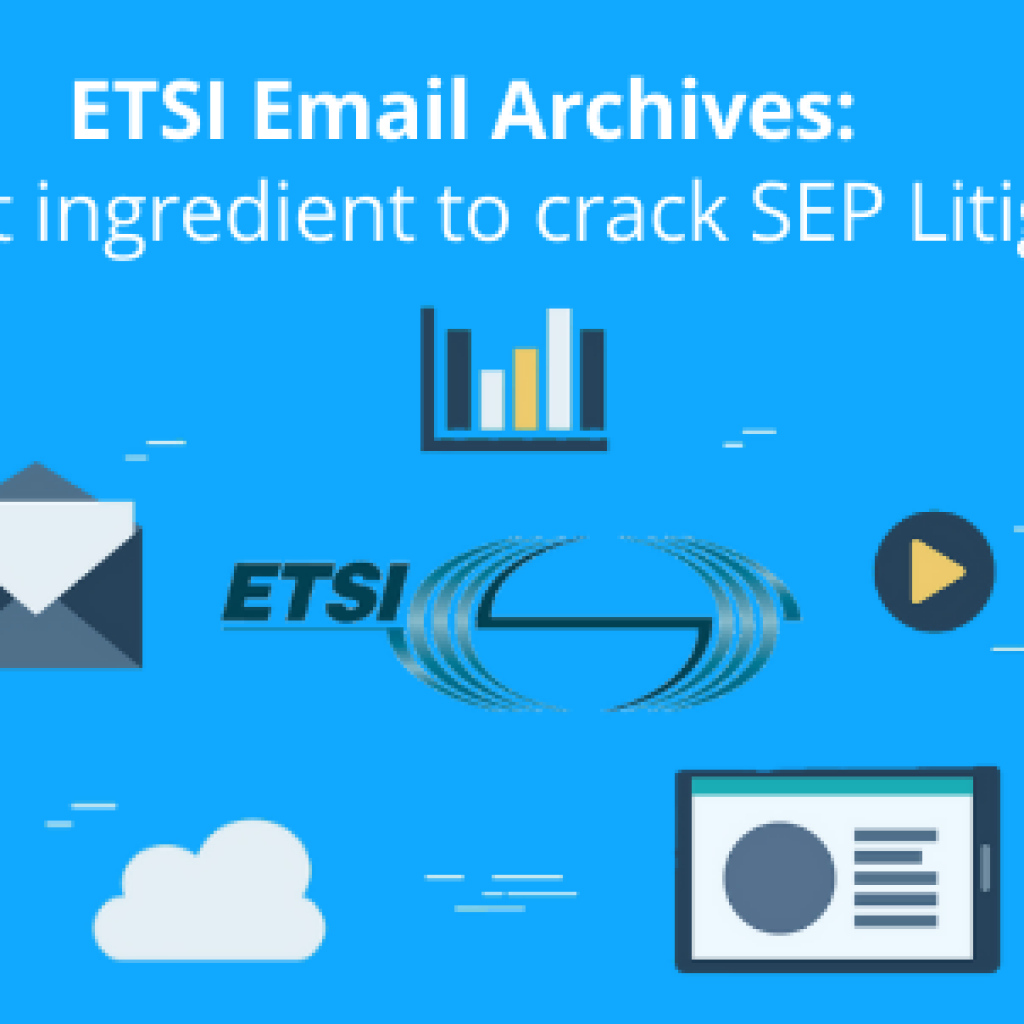As per the report by Global X ETF, to reach global net-zero power sector targets, Long-Duration Energy Storage Systems must be scaled up by an estimated 400 times from present-day levels to 85–140TWh by 2040. This scale-up equates to a $1.5–3.0 trillion investment opportunity.
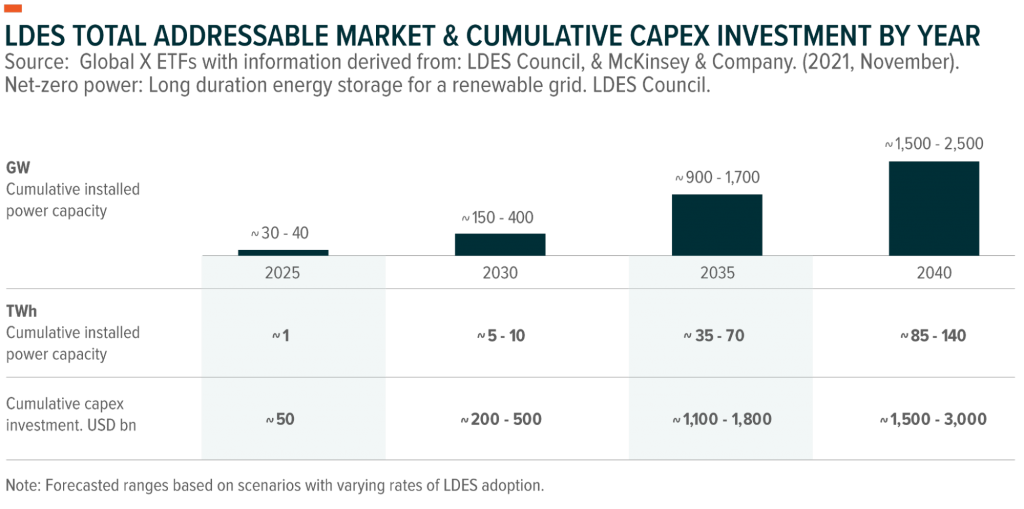
Source: Global X ETF
Such a high investment opportunity results from the benefits a Long-duration energy storage system (LDES) holds. Being a fundamental technology, it enables the economy to function upon intermittent renewable energy sources and backup power even after interruptions to the grid. However, cost, permitting, and technological barriers, in addition to a lack of regulatory support, prevented LDES systems from wide-scale adoption.
Finally, as a part of its Energy Earthshot Initiative, the United States Department of Energy, in 2021, began an endeavor to bring the costs of long-term energy storage down to a more reasonable level by 2030. It aspires to provide inexpensive grid storage for clean energy by decreasing the cost of grid-scale energy storage by a factor of 90% for systems that can store energy for 10 hours or more. (Source)(Source)(Source)

Additionally, in Nov 2022, The Biden-Harris Administration, through the U.S. Department of Energy (DOE), announced nearly $350 million for emerging Long-Duration Energy Storage (LDES) demonstration projects. (Source)
With all the investments and demand, the global long-duration energy storage systems market was valued at $4.4 billion. In fact, it is expected to reach $15.1 billion by 2030 with a CAGR of ~27.9% during the forecasted period. (Source)
Global Long-Duration Energy Storage System Market Size during 2022-2030 ($Billion)

To form a strong foothold in the domain, it is necessary to study the challenges faced by the sector. And how are companies and startups innovating to make it big in the industry?
Advantages of Using Long Duration Energy Storage
Energy Arbitrage – Energy Arbitrage is simply purchasing and storing more electricity during off-peak periods. Later, they discharge it during peak periods; thus making it a simple and effective way of saving cost.
LDES can potentially engage in energy arbitrage as buyers can purchase energy when the demand and price of energy are low, store it in grids, and supply energy to households or corporations when demand is high. The shift can be from low-demanding weekends to high-demanding weekdays. Or even seasonally from spring and winter, when renewable curtailment is high, to high-demanding summers.
Resiliency Support – When energy is available for longer periods, there is an opportunity for LDES to give support for resilience and reduce the effects of unforeseen extreme events that span over many days. LDES can help with resilience in a big way because the loss of load value is very high, and it keeps on increasing. (Source)
Challenges of Long Duration Energy Storage
Storage – The problem of storage, and more specifically, long-term energy storage, is one of the most challenging problems in clean technology. The other obstacles for LDES include cost, the readiness of the technology, the pushback from society, suitable market values for storage of over 4 hours, and unavailability of enough renewable grid penetration. (Source)
Long Duration Energy Storage Companies
1. ESS, Inc.
ESS Inc. is a major provider of long-duration (4+ hours) energy storage solutions. The company caters to commercial & industrial, utility, microgrid, and off-grid applications. Their iron flow battery, The Energy Warehouse (EW), can deliver up to 8 hours of continuous energy with a 20+ year operating life and no capacity degradation. The EW, which uses earth-abundant iron, salt, and water as its electrolyte, is a secure, long-lasting solution with the lowest levelized cost of storage (LCOS) per kWh. (Source)
ESS iron flow battery solutions are fully developed, second-generation systems that provide unrivaled cost and performance sustainability. The company’s patented electrode design and control system, combined with their simple electrochemistry, enables users to operate for longer periods of time, at higher efficiency, and at deeper discharge levels. (Source)
ESS Iron Flow Chemistry

Important Collaborations
In 2022, the company announced a strategic partnership with Energy Storage Industries Asia Pacific (ESI). This partnership aims to distribute and manufacture iron flow batteries based on ESS technology in Australia, New Zealand, and Oceania to meet the region’s rapidly growing demand for long-duration energy storage. According to the agreement, ESS would initially supply ESI with 70 complete 75kW / 500kWh Energy Warehouse (EW) systems in 2022 and 2023. (Source)
2. Highview Power
Highview Power is a major global provider of Long Duration Energy Storage (LDES). The company provides a liquid-air energy storage solution that can deliver enough electricity to power over 200,000 homes for 12 hours in two weeks.
The proprietary technology of Highview Power is based on the principle of air liquefaction, which allows for the easy storage of gases. Their process is unique in that it can use low-grade waste heat and waste cold. This increases efficiency and expands a wider range of applications, including thermal power plants, steel mills, and LNG terminals. (Source)(Source)
Highview Power- Liquid Air Energy Storage Technology

Important Collaborations
In 2021, Highview Power selected MAN Energy Solutions to offer its LAES turbomachinery solution for its CRYOBatteryTM facility, a 50 MW liquid air, energy-storage facility located in Greater Manchester (UK). The MAN turbomachinery train would be at the core of the CRYOBattery plant. When completed, it would be one of Europe’s largest battery-storage systems. This would eventually provide clean, dependable, and cost-effective long-duration energy storage derived from renewable sources. (Source)
3. Ambri
Ambri, established in the United States, offers a long-term energy storage system designed for daily cycling. It has a lifespan of 20+ years with minimal fading.
Ambri’s Liquid Metal BatteryTM technology addresses the world’s most critical energy issues by fundamentally altering how power networks operate. It increases the contribution of renewable resources while decreasing the need to build traditional power plants. The liquid metal battery comprises a liquid calcium alloy anode, a molten salt electrolyte, and a cathode made of solid antimony particles, allowing for low-cost materials and a low number of cell assembly stages. Ambri systems do not generate or emit any gases. Thus, there is no risk of thermal runaway. (Source)(Source)
Interested to read the complete study on Ambri’s Liquid Metal Battery?

Important Collaborations
In 2022, Ambri announced that Xcel Energy would exhibit Ambri’s energy storage technology at the world-class Solar Technology Acceleration Center (SolarTAC). Ambri’s Liquid MetalTM battery energy solution will help Xcel Energy achieve its renewable energy and economic development objectives.
According to Adam Briggs, Chief Commercial Officer at Ambri, “We are honored to be selected by Xcel Energy as they continue to drive towards a carbon-free future. Partnering with a progressive and innovative utility such as Xcel Energy is an exciting opportunity for Ambri. Their clean energy vision aligns directly with our mission to leave the planet a better place for future generations.” (Source)
Long-Duration Energy Storage Startups
1. Energy Dome
Energy Dome is an Italian startup that has developed a new technology for large-scale and long-duration energy storage. Their patented technology is based on a thermodynamic process that uses CO2 to preserve electricity at a low cost and with unparalleled round-trip efficiency.

The CO2 Battery developed by the startup is a long-term, large-scale energy storage device centered on a thermodynamic process that conveniently stores energy. It manipulates CO2 under various state conditions in a closed thermodynamic transformation. The CO2 Energy Transition Combined Cycle (ETCC) focuses on a closed thermodynamic transformation that utilizes CO2 as an operating fluid in conjunction with a gas turbine to generate power and conserve energy.
Important Collaborations
In 2022, Energy Dome announced a collaboration with Ørsted to conduct viability research on deploying a 20 MW / 200 MWh energy storage plant at one or more of Ørsted’s sites using Energy Dome’s CO2 Battery technology. The collaboration intends to deploy long-duration energy storage to offer baseload renewable energy to Ørsted’s final consumers. Thus limiting the increasing fluctuation in energy supply and offering grid stability services. (Source)
In 2022, Energy Dome collaborated with Ansaldo Energia to provide energy storage plants in Europe, the Middle East, and Africa. The two inked a non-exclusive licensing deal to collaborate on commercializing long-duration energy storage plants throughout the EMEA region. It attempts to promote increased integration and utilization of renewable energy on the grid. (Source)
2. Energy Vault
Energy Vault is the developer of sustainable energy storage solutions aimed at hastening the transition to a carbon-free, robust power grid and transforming the global strategy to utility-scale energy storage. It strives to mitigate climate change by providing clean and reliable electricity via novel gravity and kinetic energy storage systems.
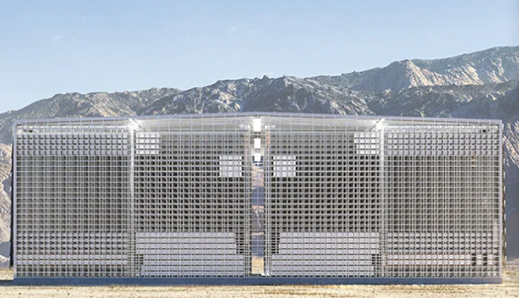
The company built the LDES systems on unique gravity energy technology, best suited for cases requiring 4 hours or more of storage capacity. The Energy Vault EVx platform leverages a mechanical process of raising and lowering composite blocks to conserve and distribute electrical energy. (Source)(Source)(Source)
Important Collaborations
In 2022, Energy Vault and Jupiter Power declared the signing of a deal to obtain 2.4 GWh of supply chain equipment and services that will be incorporated and supplied in Jupiter Power’s battery energy storage projects via Energy Vault’s hardware and software management platform. (Source)
3. Antora Energy
The startup utilizes zero-carbon heat and electricity to electrify heavy industry. Antora Energy has developed low-cost, long-term energy storage by storing heat energy in extremely cheap raw materials. Then transforming the heat back to electricity using high-efficiency Thermo-photovoltaics, with the promise of providing a marginal cost of the energy capacity of $10/kWh.
Antora’s thermal energy storage utilizes surplus solar and wind electricity to heat carbon blocks to the temperature of a toaster and then releases both electricity and process heat up to 1500°C on demand. (Source)(Source)(Source)(Source)
Antora Energy Technology Process

Important Collaborations
In 2021, the National Renewable Energy Laboratory (NREL) announced and collaborated with Antora Energy and the Massachusetts Institute of Technology (MIT) on two independent programs in Thermo-photovoltaic technology over the past three years. Antora’s technology utilized Earth-abundant materials heated to above 1000°C and insulated to preserve energy as high-temperature heat. (Source)
Conclusion
The spotlight on Long Duration Energy Storage Systems is because of the technologies it encompasses. These technologies can store electrical energy in various forms for prolonged periods at a competitive cost and at scale. A new industry report by McKinsey also shares how some long-duration energy storage systems can provide “clean” flexibility by storing excess energy (electrical or thermal) during peak supply and releasing it as heat when demand requires. (Source) Not only does the LDES hold the solution to the energy storage problems, but it could also help decarbonize the energy system. These solutions are what the world is striving for, and they would ultimately take the world to zero carbon emission while providing cheap and reliable energy sources.
Interested in other energy storage trends of 2023? Download our exclusive report by filling out the form below:
Authored by: Vipin Singh, Market Research
Edited By: Annie Sharma, Marketing

